With the successful completion of the “Seminar on Freshwater/Marine Aquaculture Promotion for Senegal”, FFRC has successfully completed 10 online foreign aid training programs sponsored by the Ministry of Commerce this year, and trained 747 participants from 41 countries to participate in online training, exchanges and lectures.
FFRC has specially set up a online visit and practice filming team to bring laboratories, aquaculture bases, aquatic products and their derivatives, aquaculture companies and experimental operations onto the screen. The participants said that the online visit and practice allowed them to more intuitively understand the knowledge points taught by Chinese experts, and it was also convenient for them to apply what they had learned to the actual fishery production in their own countries.
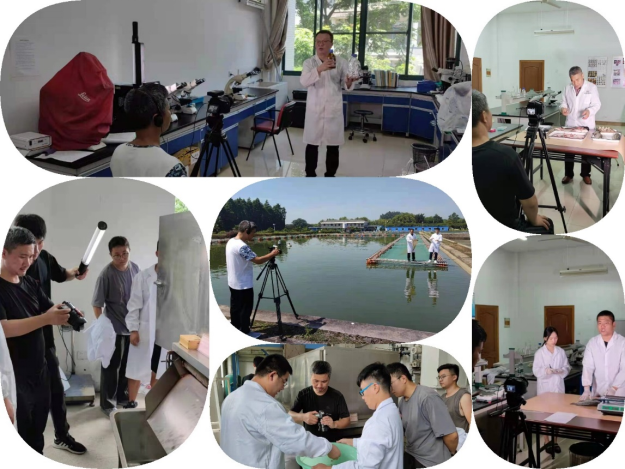
▲Pond, laboratory, processing factory - online visit and online practice complement each other for an immersive participatory experience for participants
The curriculum highlights the key points, such as “Carbon Neutral” and “Green Aquatic Products”, and runs through the training design throughout the year. The experts actively discussed with the participants how to reduce carbon emissions and sequester carbon in the fishing industry, and help achieve the world’s carbon peak and carbon neutral. The content of this section is of particular interest to participants from Pacific Island countries who participated in this year's online training courses.
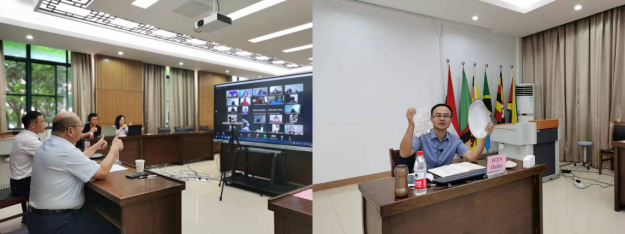
▲Xu Pao, Director of FFRC, praised the participants’ active participation in the seminar on “Green Aquatic Products” (left)
▲Wen Haibo, expert of FFRC, displayed shellfish and its value-added products (right)
“Online foreign aid” boosts Sino-foreign scientific and technological cooperation. At present, China and Mongolia have signed a memorandum of cooperation in fishery science and technology, and the China-Egypt fishery cooperation framework has also been initially formed, laying a solid foundation for the joint application of science and technology cooperation projects between governments.

▲The site of the Sino-Mongolian aquaculture science and technology cooperation technology seminar
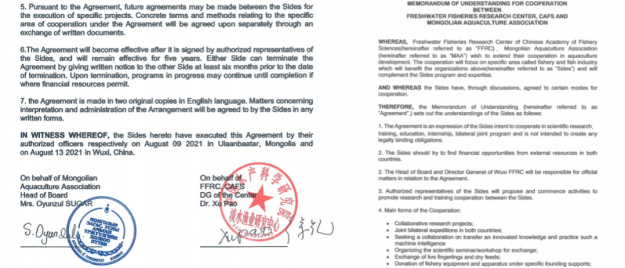
▲China and Mongolia signed a memorandum of cooperation in aquatic science and technology
The response to the online training was overwhelming, and the offline training has been motivated to move forward. More than 500 written feedbacks and thanks from participants from all over the world moved the “International Cooperation and Education people” of FFRC and made us see more clearly the significance of China's foreign aid training. The written feedback of Mr. Saransiri Nuanmanee, a participant from the National Fisheries Administration of Thailand, was selected as the excellent essay by the Chinese Embassy in Thailand.

▲Mr. Saransiri Nuanmanee exchanged and discussed with experts from FFRC (left)
▲The consul of the Consulate General of Thailand in Shanghai visited FFRC (right)

▲Mr. Saransiri Nuanmanee submitted an article to the Embassy and it was accepted
Mr. Peter Daka, a senior fishery officer from the Ministry of Fisheries and Livestock of Zambia, sent a letter of thanks to the Ministry of Commerce and FFRC. He sincerely thanked the government of the People's Republic of China for the excellent work done by the Academy for International Business Officials (AIBO), MOFCOM, FFRC and other institutions, making him one of the many beneficiaries of developing countries.

▲Mr. Peter Daka sent a letter of thanks to the Ministry of Commerce and FFRC

▲In 2019, Mr. Peter Daka led a team to learn the aquatic seed rearing technologies at FFRC
Ms. Irene Goring Mahomoc from the Philippine Bureau of Aquatic Resources wrote in her training feedback, “I am grateful to China for its continuous willingness to support the Philippines' development of scientific and technological agriculture and provide financial and technical support for the Philippines' agriculture and fisheries. I believe that under the leadership of General Secretary Xi Jinping and President Duterte, the connection between the “Belt & Road” initiative and the “Build, Build, Build” plan will continue to deepen.”
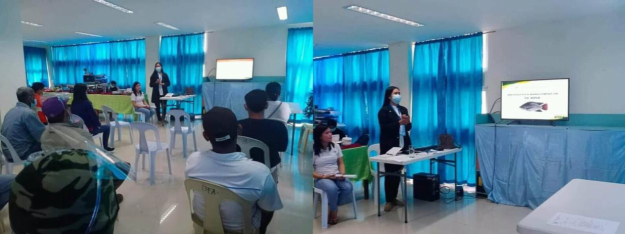
▲Ms. Irene Goring-Mahomoc organized the technical staff of the Bureau of Aquatic Resources to participate in the online training of FFRC
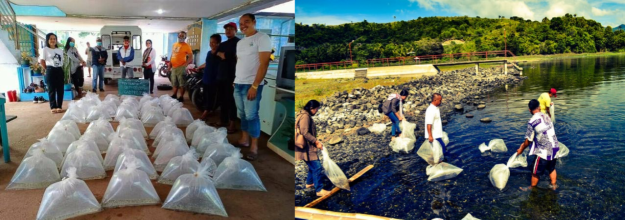
▲With the remote technical support of FFRC, Ms. Irene Goring-Mahomoc organized aquatic resources enhancement and releasing activities in the region
Senior Fisheries Officer Johane Mkunga and Happyness Venant from the Ministry of Livestock and Fisheries of Tanzania jointly submitted the official report, in which they said, “On behalf of the United Republic of Tanzania and the Ministry of Livestock and Fisheries of Tanzania, we would like to thank the Chinese Embassy in Tanzania and the AIBO, MOFCOM for their invitation. We participated in the capacity building training course, thanks to the online training organized by FFRC, and thanks to the professors and organizers of FFRC for taking classes for us under the condition of reversing the jet lag, helping us solve various problems in our production development, which will provide us with a solid technical foundation for better development of the Tanzania's aquaculture industry after the COVID-19 pandemic.”
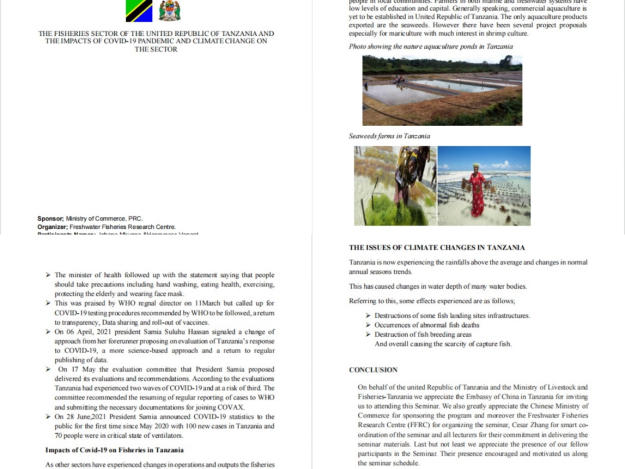
▲Johane Mkunga and Happyness Venant jointly submitted the online training study report and expressed their thanks